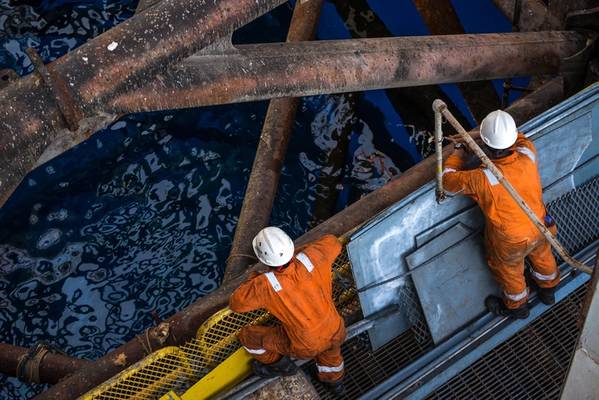
Oil and gas organizations have significantly improved safety over the years, and evaluating a company’s safety culture can identify areas for further gains. But culture is hard to measure and even more difficult to change.
Over the past 10 years, ABS Group has conducted HSE/process safety culture evaluations involving more than 80 offshore assets in the Middle East, North Sea, North Atlantic and Gulf of Mexico. After a decade of evaluating data insights into the leading cultural factors that contributed to major offshore incidents, ABS Group formulated a next-generation root cause analysis (RCA) methodology and risk management tool called Cultural Cause Analysis (CCA). CCA supports organizations in knowing which changes in cultural factors have the largest positive impact to prevent future losses.
ABS Group believes CCA will allow organizations to create lasting changes that promote sustainable, outstanding performance in safety leadership. ABS Group’s new approach leverages 40 years of incident investigation, RCA and process safety management (PSM) expertise.
Laura O. Jackson, ABS Group Director of Advanced Training Solutions, says ABS Group “picks up the pieces of the incident,” investigates the incident, and performs an RCA into the management system weaknesses that went wrong and led to the incident. The RCA may reveal there were no policies in place or policies not being enforced, and that’s usually where investigation into management system weaknesses usually ends, she says. Such investigations typically involve discussion about the safety culture in relation to the incident, but these conversations are unstructured.
“Organizations can end up in heated debates about how good their safety culture is,” she says.
Jackson says CCA can reveal underlying cultural factors within an organization that contribute to chronic issues across multiple work sites despite repeated efforts to address the problem.
“The analysis of culture may show that people don’t feel accountable,” Jackson says. “Over time, the organization may normalize deviance related to enforcing standards, which will manifest itself in chronic issues.”
 Laura O. Jackson, ABS Group Director of Advanced Training Solutions
Laura O. Jackson, ABS Group Director of Advanced Training Solutions
Frontline employees may sense a disconnect between what leadership says, such as safety is a core value, and what leadership does, such as failing to fund safety programs or delegating responsibility, and that can lead to a culture not aligned with the stated core value of safety, she says.
A cultural cause map can help organizations trend data across all their different platforms and plants to show the evolution of cultures in a systemic way, she says.
Steve Arendt, ABS Group Vice President of Oil, Gas and Chemical Services, said CCA can be used as part of a proactive culture evaluation or following a process safety event “to understand the culture disease pathology that may be affecting a company and how best to return to good process safety health.”
In the near future, Jackson says, ABS Group expects leadership will monitor CCA data and use the analysis to manage their HSE culture.
“Pulling structured and big data to bridge the conversation of culture from what’s happening in the field to the executives in a way that they can positively influence it,” she says.